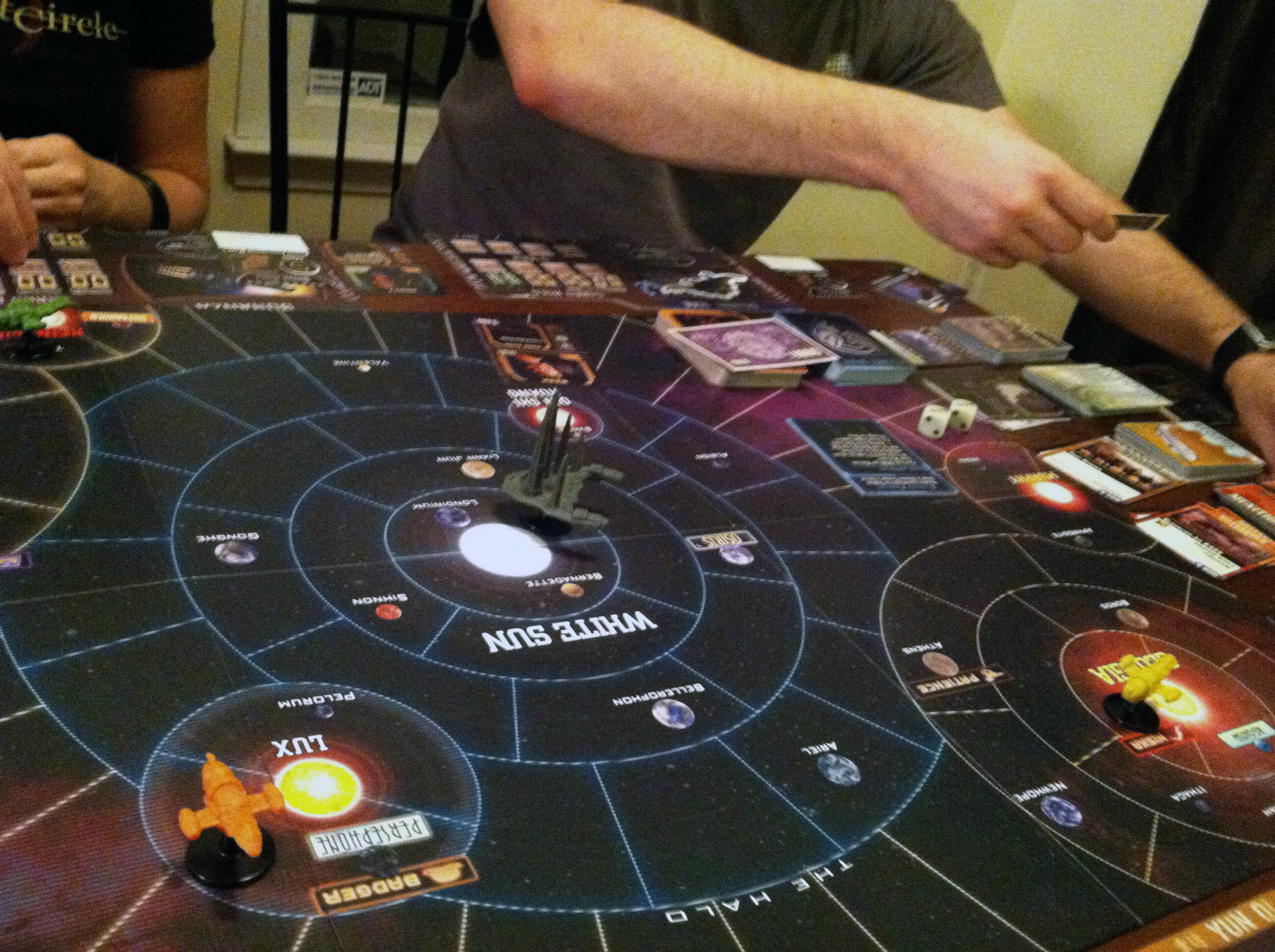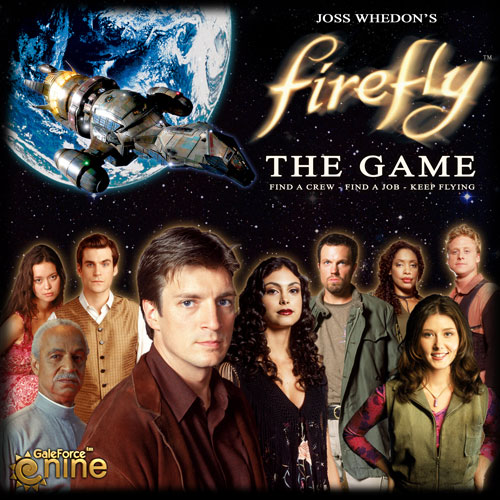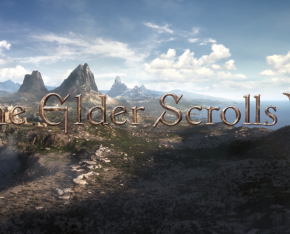By Anni Simpson on October 15, 2013 at 10:00am
Since "Firefly" aired on FOX in 2002, fans of director Joss Whedon flocked to it and gobbled up the too few 13 episodes. "Firefly", for the uninitiated, follows a crew led by captain Mal Reynolds on his firefly-class spaceship, Serenity. In many ways, it’s your typical sci-fi space western: a crew that picks up jobs from less than savory people, a centralized government that can’t be trusted, and characters with tortured pasts that bleed through their everyday tasks. However, anyone who knows the show knows that it was much, much more than that, which is why last week’s release of "Firefly: The Game " was so exciting.
“Firefly: The Game” is a tabletop that supports up to four players on their mission to complete pre-defined storyline objectives. Each player starts by picking a captain – I chose Mal – a ship, a standard power core for your ship, starter cash, and starter fuel and spare parts. In order to complete the storyline objective, you need to pick up jobs, some of which are illegal and will upset characters with a “moral” classification. You can also pick up additional crew members, which you’ll need depending on the requirements of the job, additional fuel and parts, and upgrades to your ship on planets or if you’re within trading proximity. Each player can accomplish two tasks during a turn: buying, trading moving, picking up a job, or turning in a job. You can’t do two of the same kind of task twice in a row. You can only do some of those tasks if you’re on the right planet. There’s also an Alliance ship and a reaver ship who will mess you up.
Sound complicated so far? It’s actually way more complicated than that, but I won’t get into the more nuanced rules of the game. It took my group an hour to set the game up and explain how to play.

My group spent a lot of time flying across the board between planets several times in order to buy and finish our missions. Although running back and forth across the board between different planets seemed repetitive at first, it really wasn’t. Having wrenches thrown in your expected plan kept the game interesting – and sometimes enraging – particularly when you consider that everyone else knew what your current missions were and where you needed to be to complete them. Some of the unexpected obstacles included having the reaver ship sit on a location two players needed to complete their mission, hiding fugitives while being boarded by an Alliance ship turn after turn, and not being able to find a freaking medic. When the obstacles weren’t frustrating, they were hilarious and entertaining. I have to give credit where credit is due: the board wasn’t exactly big, but there was so much going on, it didn’t need to be.
Unfortunately, our game ran long. It actually ran so long the two people unable to join in the game because of the four-player limit were able to play eight rounds of “Magic: The Gathering” before we gave up, and we didn’t even complete the first part of the storyline. The objective – which was even suggested for new players – required having $7,000 to complete. At my richest, I had about $3,000. I was on a mission that would grant me another $3,000, but the requirement for completing it was also high. It was not possible to hoard money because of the necessity of paying off your crew for completed missions and picking up parts/people that would help with the next mission.
Ultimately, “Firefly: The Game” wasn’t a bad way to spend four hours (well, three if you don’t include setup). It stuck closely to the heart of the series, and it wasn’t as complicated as it could have been. Tabletop gaming isn’t exactly a genre known for having quick matches or simplistic game play (“Android: Netrunner,” much?). It also gave me what I wanted out of the game, which was a way to interact with the characters and the universe in “Firefly.” I did exactly that when I had to have Simon and Shepard suck it up for illegal missions or take on cargo for lower-paying missions.
The cargo was totally cattle.
The way the game was set up did make it incredibly easy to accomplish that task, too. Although there are no-name characters you can add to your crew that fill necessary roles, you can also pick up anyone from the main cast. It definitely added to my experience to have Simon and Shepard on my crew, and it added to my experience to take missions from the skeezy underworld characters I recognized, as well. With the way we used the Alliance ship in our own game to screw with each other, I really came to understand Mal’s hatred of them without even having to fight them in an ugly, drawn-out war.
The only things I didn’t like were the setup time, space requirement (took more than my dining room table), and the four-player limit. It always sucks to leave people out when you have a sizable group of people who enjoy playing those sorts of games.
“Firefly” is moderately priced at $50 from GaleForce9 directly (and sold out on Amazon as of writing this review anyway), so I wouldn't put the money into it unless you really love the series and have friends you know would play with you. But I would play it again with someone who already had it.









